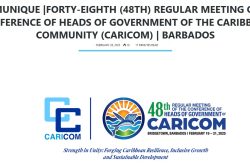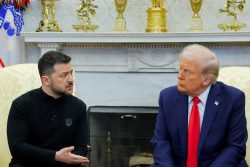(Reuters) – The Joao Havelange Olympic stadium in Rio de Janeiro might not be named after the once-powerful former FIFA president by the time of the 2016 Games, IOC presidential candidate Thomas Bach hinted yesterday.
Rio politicians presented a bill on Wednesday requesting a name change after a FIFA ethics report said long-time IOC member Havelange, 97, had taken bribes.
IOC vice president Bach said any stadium name needed to be in line with the IOC’s ethics policy.
“The IOC is in the good position to be able to build on6 the zero tolerance policy against doping, corruption and any kind of manipulation,” Bach, who yesterday also announced his candidacy for the IOC presidency, told reporters in a conference call.
“I would be very happy to continue with this zero tolerance policy for the sake of the credibility of the Olympic Games, the IOC and sports in general.”
While his comments did not specifically mention Havelange, an IOC member from 1963 until a surprise resignation in 2011, Bach’s comments are in stark contrast with those of Rio Games organisers.
Games chief operating officer Leonardo Gryner had called Havelange “a historical icon in Brazilian sport,” as recently as the London 2012 Olympics and said the name would stay. “We in Rio 2016, I, have a lot of pride to be associated with Joao Havelange.”
Asked to say whether his position meant a name change for the stadium, Bach said: “I told you very clearly that it would be following the zero tolerance policy on ethics and I think from this you can draw your conclusions.”
“Until now there is no Olympic stadium yet in Brazil. There will be one in 2016 and I am sure Brazil, the organising committee, will respect all the ethical requirements being established by the IOC at this time,” Bach said.
Havelange quit as FIFA’s honorary president last month, shortly before the publication of a report by the federation’s ethics committee into allegations he took bribes from the ISL sports marketing company while president of soccer’s governing body.
A Swiss prosecutor said in a legal document last July that Havelange and former FIFA executive committee member Ricardo Teixeira took multi-million bribes from ISL on World Cup deals in the 1990s.
The FIFA ethics committee report also said that “not inconsiderable amounts” were channelled to Havelange and Teixeira from ISL, and there was no indication either of them gave any service in return.
Teixeira, formerly Havelange’s son-in-law, was president of the Brazilian Football Confederation from 1989 until last year.
The Joao Havelange stadium was built for the 2007 Panamerican games but was closed for repairs in March after structural problems were found in the roof.
It is due to be used for the athletics events when Rio hosts the 2016 Olympics, although the opening and closing ceremonies will be at the Maracana.









